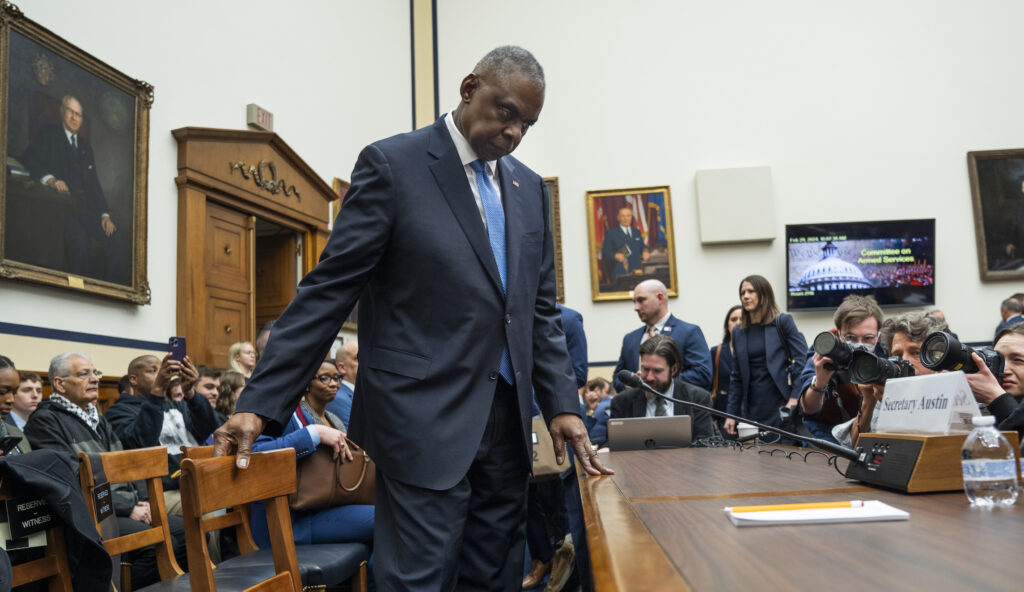House Republicans grilled Defense Secretary Lloyd Austin on Thursday over his secret hospitalization last month, questioning how it was possible the White House was unaware where he was for multiple days and asking if it meant he was an “irrelevant” Cabinet member.
The secretary, who is recovering from prostate cancer and subsequent complications from his treatment for it, testified in front of the House Armed Services Committee on Thursday morning. He appeared in front of the committee to discuss his emergency hospitalization on Jan. 1, as well as the delayed notification from his senior staffers to relevant White House and congressional officials.
“I find it very concerning that the secretary could be hospitalized for three days without anyone else in the administration even noticing. That suggests Secretary Austin’s advice is not sought or heeded in the White House, even while military operations were ongoing in the Middle East,” Chairman Mike Rogers (R-AL) said in his opening remarks. “It also implies that the White House politicals’ not seasoned defense skills are in the driver’s seat on matters of national security, which is very disturbing.”
Austin was hospitalized on Jan. 1 and transferred his power to Deputy Defense Secretary Kathleen Hicks on Jan. 2, when he was moved into the intensive care unit, but the White House was not notified of Austin’s hospitalization until Jan. 4, which is when Hicks was informed of why power was transferred. Congress and the public were not informed until a day later, on Jan. 5.

“So that the big issue for me here is either the president is that aloof or you are irrelevant,” Rep. Jim Banks (R-IN) said during the hearing. “Which one is it, Mr. Secretary? That the president would go three days without knowing that his secretary of defense is not on the job?”
Austin replied, “It’s neither. The president is not aloof.”
A Department of Defense review of Austin’s hospitalization, which Jennifer Walsh, the director of administration and management at the Pentagon, conducted, found that the secretary did not act with “ill intent or an attempt to obfuscate.”
It also did not fault the handful of Pentagon officials who knew of Austin’s hospitalization but did not immediately notify the White House or Congress.
The Pentagon has implemented policy changes that would ensure the White House is notified of a transfer of authority and why said authority was transferred to a deputy. These new notification requirements proved effective during a subsequent Austin hospitalization in mid-February.
The White House, Congress, and the public were notified the same day he went back to the hospital.
CLICK HERE TO READ MORE FROM THE WASHINGTON EXAMINER
The Department of Defense inspector general is investigating the secrecy surrounding Austin’s hospitalization.
The United States conducted an airstrike in Baghdad, Iraq, on Jan. 4, which Austin had preemptively approved, while U.S. forces in Iraq and Syria were facing regular attacks from Iranian-supported militias. Hicks was in operational control at the time of the strike.
